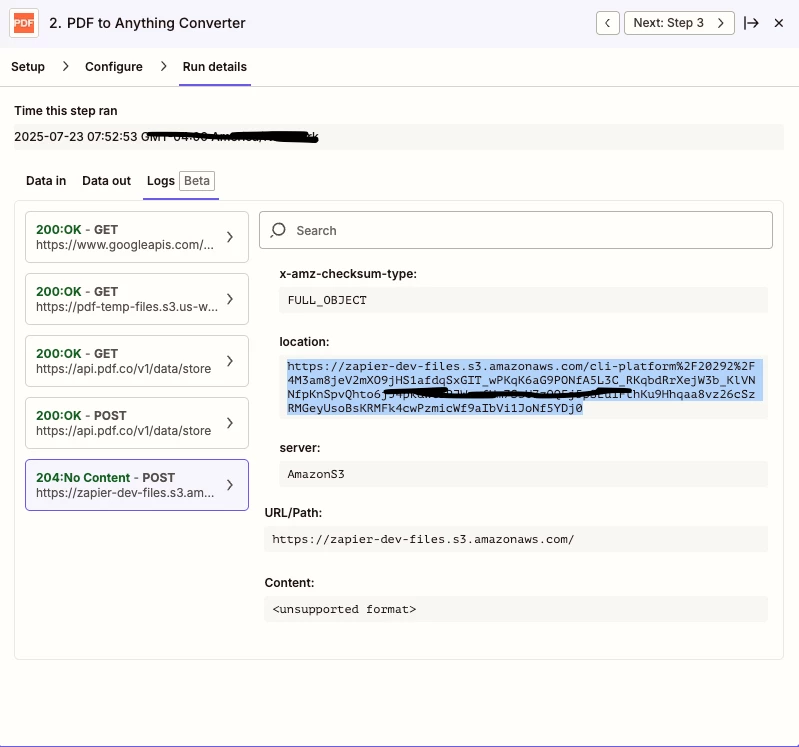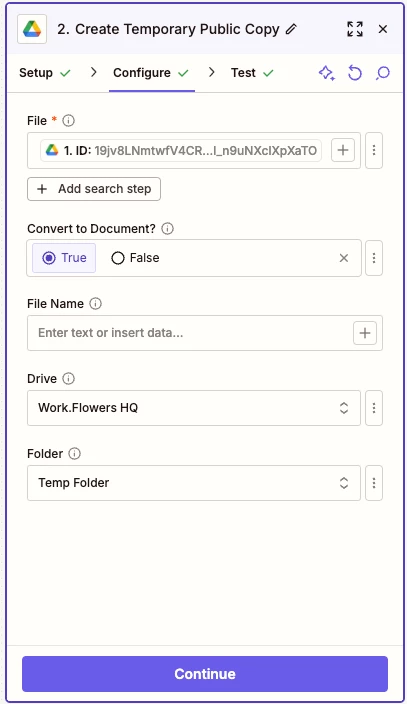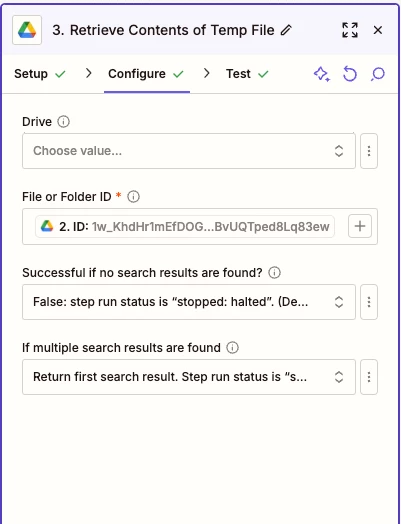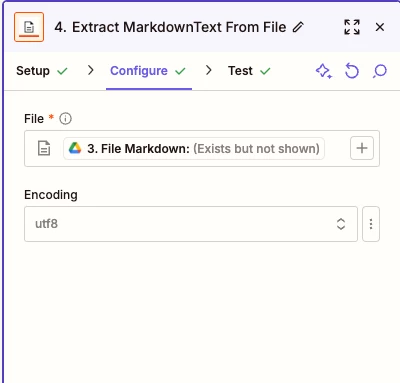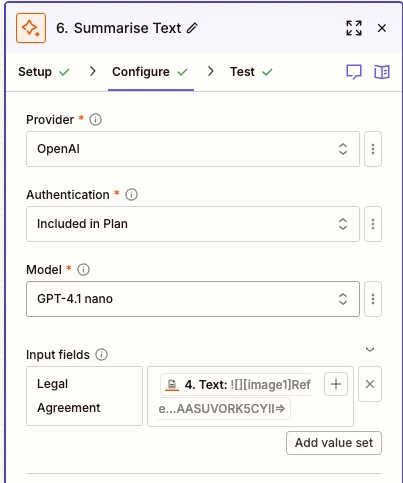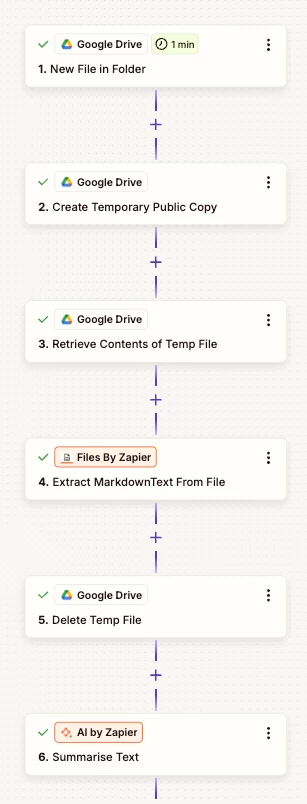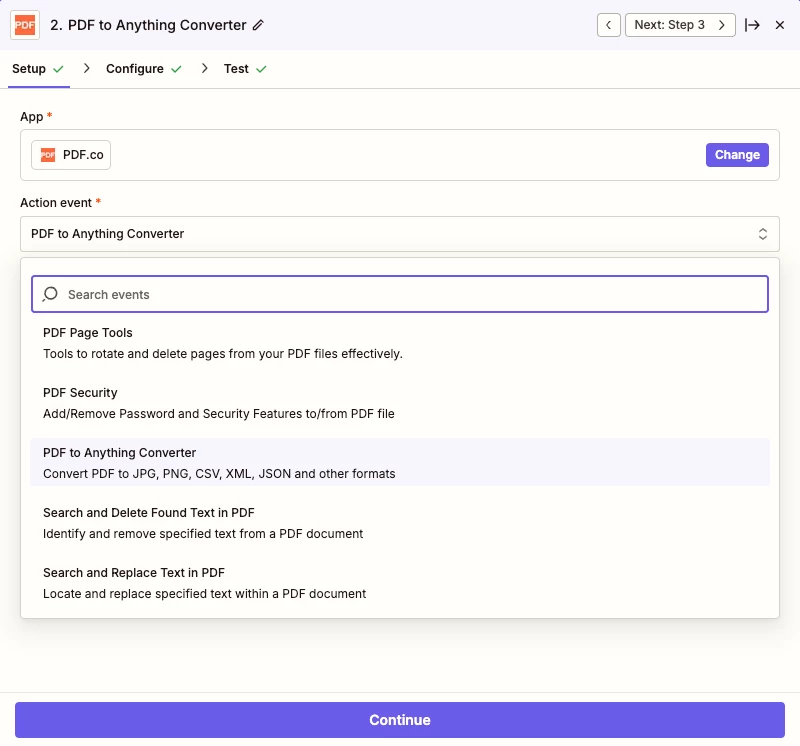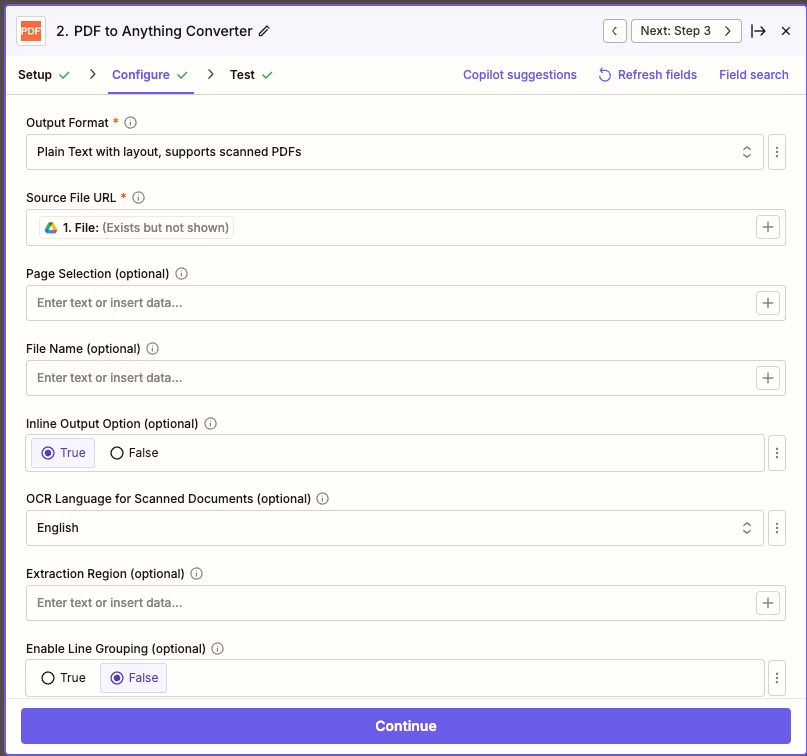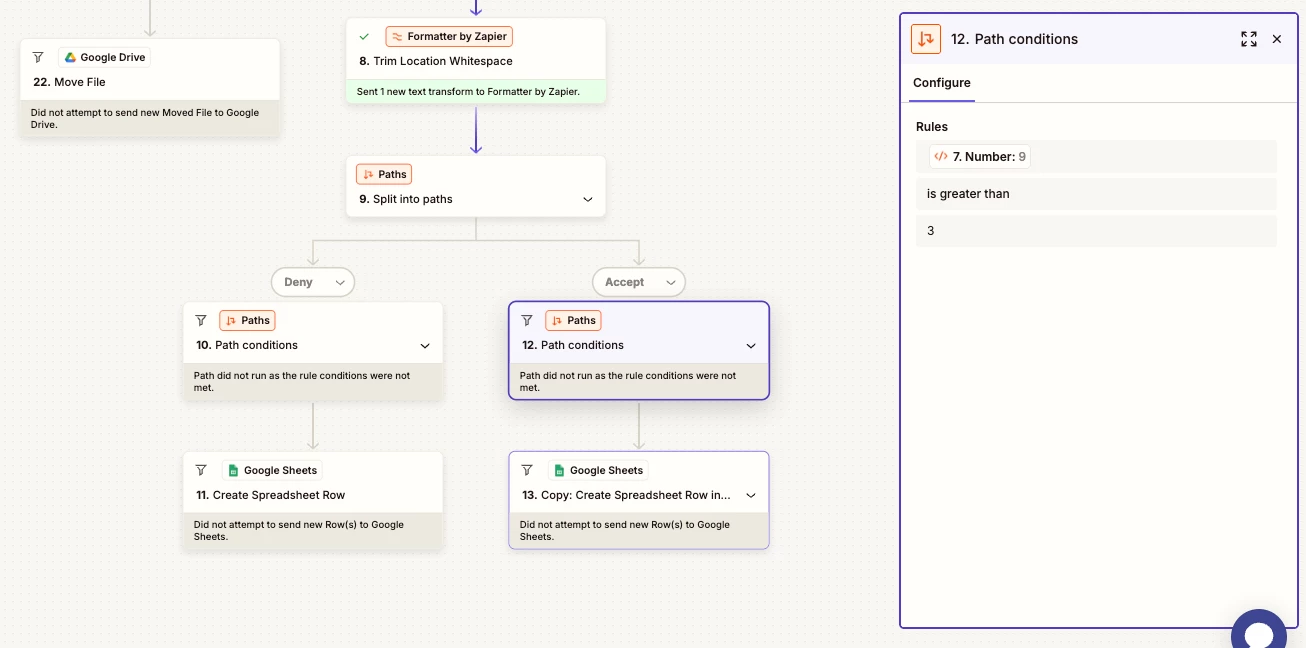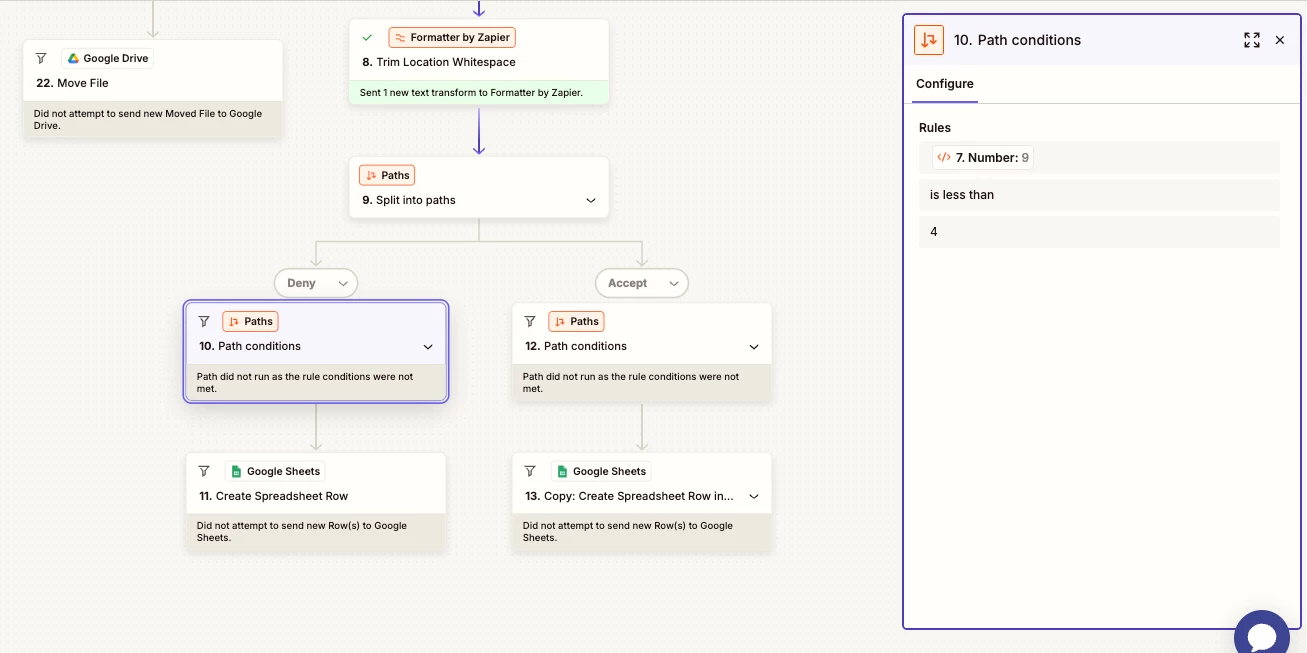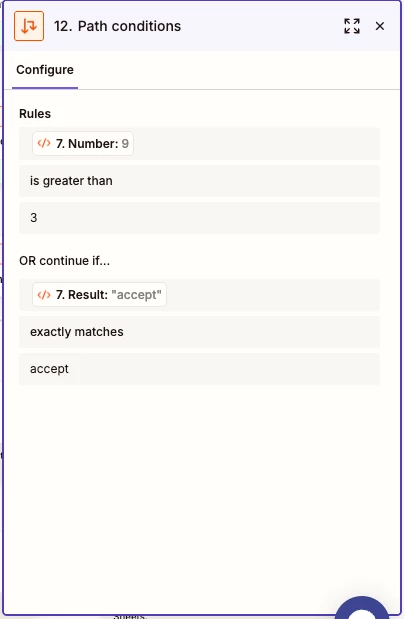This post was split by a moderator from the topic:
I’m trying a similar flow and having trouble with the variable content dropping in a test run, but not while step-by-step tests during the automation build.
I’ve attempted to passing both the “body” variable from pdf.co as well as the “url” variable as was done in this example. In both cases, when I troubleshoot the steps, pdf.co extracts the content correctly, but fails to pass the variable (see screenshot).
I’ve added a 2 minute delay in case it was a race condition, per another thread, but that hasn’t helped.
I also tried the native chatgpt app, but that loses the variable in the same way.
I’ve also made sure I have more than enough credits in both pdf.co and chatgpt. When I check the pdf.co api logs on api.co’s website, I see a number of 0 credit interactions, but with a 200 success indicator.
I’ve been working on this a few days now and am out of ideas. Would super appreciate your collective guidance.
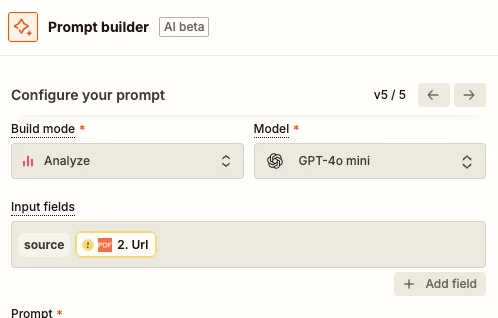
(update) When I investigate the step before (pdf.co) I see success in the logs until the last step… which is POSTing “no content”.
